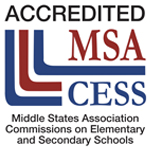Are you interested in sending your student to a NJ STEM prep school? STEM is a very powerful educational technique that utilized a comprehensive approach to boost academic performance. Simply put, STEM focuses on four areas of learning: science, technology, engineering and mathematics – hence the acronym STEM. STEM utilizes an interdisciplinary approach by integrating these four subjects into one instead of treating them as completely separate educational disciplines. For example, instead of teaching math, science, engineering and technology as individual subjects, STEM compounds them into a comprehensive learning program using real-life scenarios. STEM results in mastery of the four subjects in a way that can carry over into real life applications. Before you decide to send your student to a NJ STEM Prep School, consider the following:

NJ STEM Prep School | STEM Isn’t For Everybody
If your child has an innate interest in science or building things, a STEM school may be a natural choice. But administrators say these schools cater to all kinds of learners and that most students appreciate the hands-on nature of the curricula. Students who manage their time well may succeed in STEM programs that are self-paced and have kids working on independent projects.
Benefits of a NJ STEM Prep School
Over the past 10 years, jobs in STEM fields have grown three times as fast as jobs in non-STEM fields, according to the Department of Commerce, and STEM fields are expected to grow by 17 percent between 2008 and 2018, compared to just 9.8 percent growth for non-STEM fields in the same time frame. But without an influx of graduates in these areas, the U.S. will not have enough workers to fill those jobs. STEM schools can help young people gain the skills necessary to succeed in these fields. Over the next decade alone, the U.S. must produce approximately 1 million more STEM-degree graduates than currently projected to meet the demands of the economy, according to a 2012 report by the President’s Council of Advisors on Science and Technology. Recognizing this gap, educators have focused on getting more students hooked on math and science earlier in their school careers, which is why more STEM programs are being launched nationwide.
NJ STEM Prep School | Different Types Of STEM Education
A STEM specialty school: The entire school’s focus is on STEM and every student participates in a curriculum of science, technology, engineering, and mathematics.
A STEM program within a larger school: Some schools create STEM academies within their schools that allow interested students to study STEM in more depth.
Residential STEM programs: For these intensive programs, students live on campus and attend a STEM school.
Programs may delve broadly into all STEM subjects or they may specialize in a particular area, such as computer technology. Vocational or CTE programs that prepare students for certain high-tech fields also fall within the spectrum of STEM schools.
NJ STEM Prep School | Educational Tools in The Classroom
Students behaving as scientists: On a typical day, they may be recording observations, carrying out experiments, or conducting their own research. Learning is project-based and sometimes messy, but students learn by doing, not by rote memorization.
Connecting STEM learning to a career: To help students understand what kind of STEM jobs are available, schools may bring in tutors from local technology companies or organize internships at hospitals or research institutions.
Integrating with other subjects: Science, Technology, Engineering, and Math subjects are woven into other areas of the curriculum, with courses such as the “History of Science” or “Environmental History.”
Making use of technology: By taking quizzes on their laptops, entering data into spreadsheets, and creating graphs to illustrate the results of their experiments, students are using technology in their daily studies. STEM programs such as L&N STEM Academy in Knoxville, TN, participate in one-to-one programs through which students are given their own individual computer (or iPad, in this case) for their work. Teachers may have web pages featuring necessary classroom materials, which may also allow students to work ahead if they want to or review a lesson if need be.
Noise: Classrooms are not quiet and are often arranged so that students can sit and work in groups. This encourages collaboration as students discuss their work and challenge each other’s ideas.
The Power Of STEM | NJ STEM Prep School
All of this effort is to meet a need. According to a report by the website STEMconnector.org, by 2018, projections estimate the need for 8.65 million workers in STEM-related jobs. The manufacturing sector faces an alarmingly large shortage of employees with the necessary skills — nearly 600,000. The field of cloud computing alone will have created 1.7 million jobs between 2011 and 2015, according to the report. The U.S. Bureau of Labor Statistics projects that by 2018, the bulk of STEM careers will be:
- Computing; 71 percent
- Traditional Engineering; 16 percent
- Physical sciences; 7 percent
- Life sciences; 4 percent
- Mathematics; 2 percent
STEM jobs do not all require higher education or even a college degree. Less than half of entry-level STEM jobs require a bachelor’s degree or higher. However, a four-year degree is incredibly helpful with salary — the average advertised starting salary for entry-level STEM jobs with a bachelor’s requirement was 26 percent higher than jobs in the non-STEM fields, according to the STEMconnect report. For every job posting for a bachelor’s degree recipient in a non-STEM field, there were 2.5 entry-level job postings for a bachelor’s degree recipient in a STEM field.
This is not a problem unique to the United States. In the United Kingdom, the Royal Academy of Engineering reports that the Brits will have to graduate 100,000 STEM majors every year until 2020 just to meet demand. According to the report, Germany has a shortage of 210,000 workers in the mathematics, computer science, natural science and technology disciplines.
NJ STEM Prep School | What STEM Supporters Have To Say
If we want to have the scientists and engineers to solve future problems, STEM schools are important to the country’s future: finding sustainable energy sources, keeping water supplies clean, and discovering new technologies that help us compete in a global economy. Supporters say there is an urgent need to attract and educate more students in these fields and keep them engrossed throughout their elementary, high school, and college years. And from the student’s perspective, if they have the skills employers need, they will have an easier time finding a job upon graduation.
NJ STEM Prep School | What Critics of STEM Have To Say
By increasing the emphasis on science, math, technology, and engineering, some worry that students may lose out on other key skills. Electives like foreign languages and the arts help foster creativity and broaden students’ world view. Some STEM programs try to make up for this by offering arts programs after school; others say they recognize the need and incorporate as much arts education as they can into the school day.
Looking for a Great NJ STEM Prep School?
Cedar Hill Preparatory School is a NJ STEM Prep School that believes all children are gifted. We believe that a student’s educational environment is vital to focusing each child’s unique talents and strengths. We provide a safe and caring learning environment that fosters partnerships between the family and the school. We aim to provide a diverse environment, abundant space and stimulating activities as we strive to empower children to reach their unique potential socially, physically, intellectually, and emotionally. We have a variety of students from the Central NJ area from towns including: Somerset, Hillsborough, Warren, North Brunswick, Piscataway, Edison, Princeton, Highland Park, and many more. For more information on this Somerset County private day school, you can call at (732)356-5400 or visit the website.





